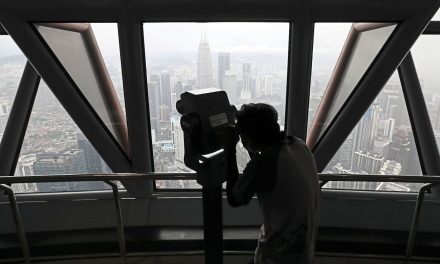Penang is first state to install fibre optic infrastructure as basic utility
Penang has emerged as the first state to enforce the installation of fibre optic communication infrastructure as a basic utility equivalent to water and electricity supplies. State Public Works, Utilities and Flood Mitigation Committee chairman Zairil Khir Johari said it was now compulsory for developers to install fibre optic telecommunications infrastructure in new buildings and development projects in the island state. This is in line with the Penang 2030 vision and the state’s strategic Penang Connectivity Master Plan. He said the decision to make the installation of fibre optic infrastructure compulsory was to support the use of high-speed internet since the copper-based internet is no longer relevant now. “This is also in line with the aspirations of the Federal government through the implementation of the digital infrastructure plan, namely the National Digital Network or better known as JENDELA,” he said. (The Edge)
Compulsory COVID-19 screening for foreign workers starting Jan 1
All employers are required to ensure that their foreign workers undergo the COVID-19 screening test starting Jan 1, to address the spread of the pandemic. Human Resources Minister Datuk Seri M. Saravanan said the cost of the screening test would be borne by the employer. “However, for foreign workers who contribute to the Social Security Organisation (Socso), screening tests can be done at clinics appointed by Socso,” he said. He said the Prevention and Control of Infectious Diseases (Fees for Coronavirus Disease 2019 (COVID-19) Detection Test) Regulations 2020 are expected to be enforced in the near future and any employer who fails to comply with the directive may be subject to appropriate action. (Bernama)
Construction industry left with lasting scar following COVID-19 outbreak
The COVID-19 outbreak in the country has left a lasting scar on the construction industry with suspension and delays in projects as well as cost overruns coupled with more than 1,500 COVID-19 infections recorded just at various worksites as at Nov 25, making it extremely vulnerable. Construction Industry Development Board (CIDB) records show that the value of construction projects awarded fell 42% to RM55.3 billion for the period of January to October 2020 compared to the same period last year. Its chief executive, Datuk Ahmad ‘Asri Abdul Hamid, said it was also estimated that the construction industry experienced losses of about RM18.5 billion between March 18 and May 1 this year. “The losses were estimated from the value of salaries, building materials, machinery rentals, project management and profit which was lost when the industry was not allowed to operate,” he said. According to him, the best way for the construction industry to move forward post-COVID-19 is to ensure that contractors are no longer reliant on a foreign workforce. The construction industry players need to adopt technology such as industrialised building system (IBS), mechanisation and automation to enhance the quality, safety, sustainability and productivity of their construction projects, he added. (Bernama)
Tabung Haji to embark on three-year plan after restructuring
Lembaga Tabung Haji (TH) will embark on a three-year investment plan from 2021 after completing its restructuring exercise with the main focus of strategic asset allocation (SAA) primarily in fixed income, real estate and equity. Investment executive director Hizamuddin Jamalluddin said the pilgrims’ fund had set a new target based on the government-approved 3R initiatives namely to reshape, restructure and re-energise its investments portfolio in three years. Hizamuddin said the 3R initiatives allowed TH to increase its assets allocation in fixed income, real estate and equity while reducing its exposure in the money market. “However, there are various challenges in terms of investment during the pandemic,” he said, adding that this, in turn, would position TH as a role model for Islamic institutions to manage finances and improve the pilgrims’ hajj management. Currently, TH’s asset under management (AUM) stands at about RM80 billion. (NST Online)
REIT deals hit RM2 billion in 2020
The value of transactions linked to real estate investment trusts (REITs) have reached about RM2 billion this year, The Edge Malaysia reported. They involved mainly office assets “followed by industrial assets”, while hospitality and retail assets did not figure much. “Investors are wary about market conditions and the impact of Covid-19 on offices, so the major office deals [this year] were related-party acquisitions by REITs, where the buyer has the comfort of knowing the asset and all the tenants intimately,” said Nabeel Hussain, Savills Malaysia’s deputy managing director and head of capital markets. “The market should come back in 2022/23 and these office transactions will bear fruit with higher yields, as rentals will improve,” said Siva Shanker, CEO of real estate agency Rahim & Co International Sdn Bhd. As for industrial REITs, he says they “are solid investments: since “they are backed by long-term tenancies or leases”. (The Edge)





